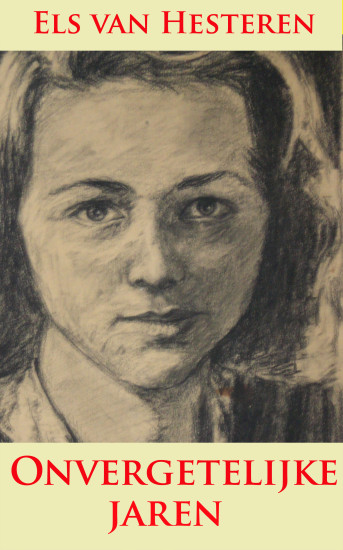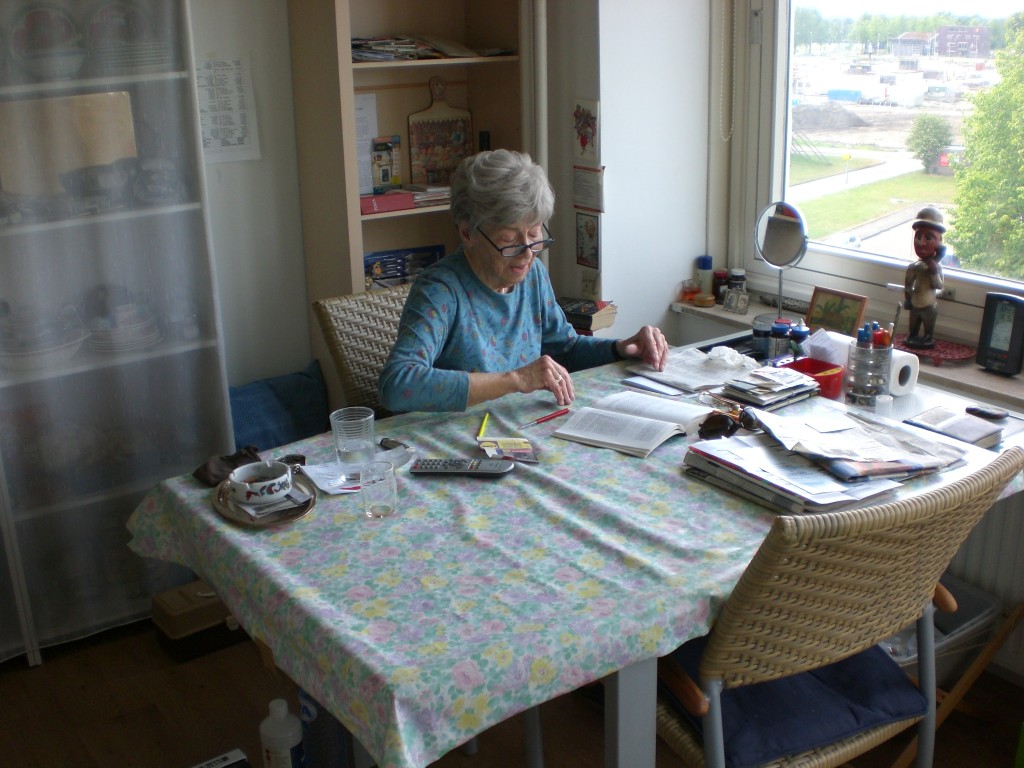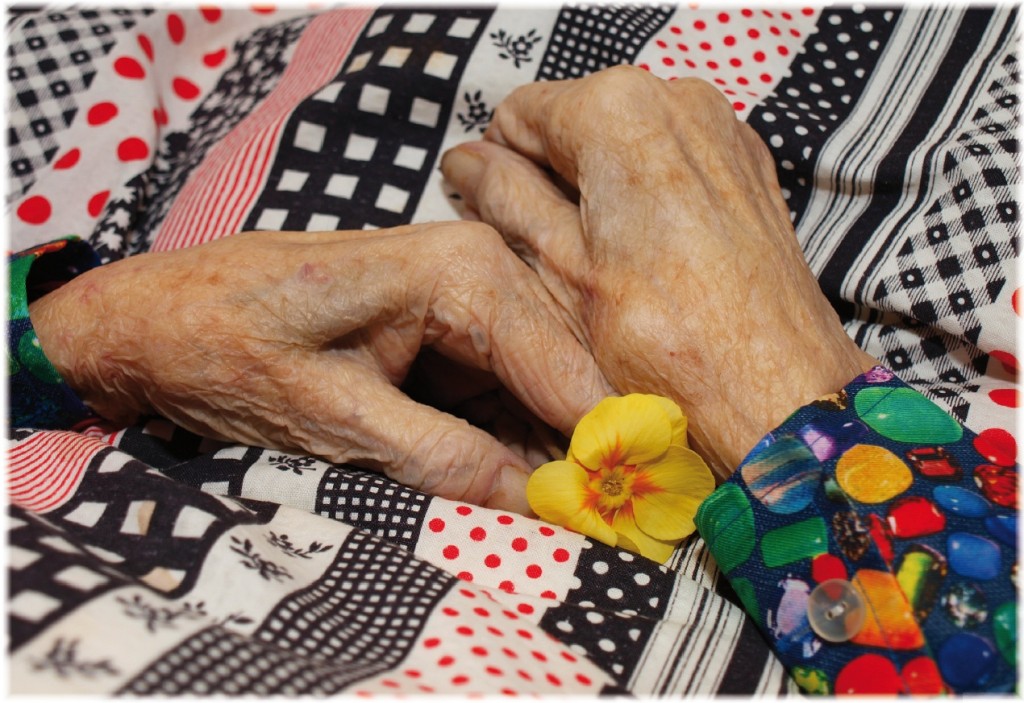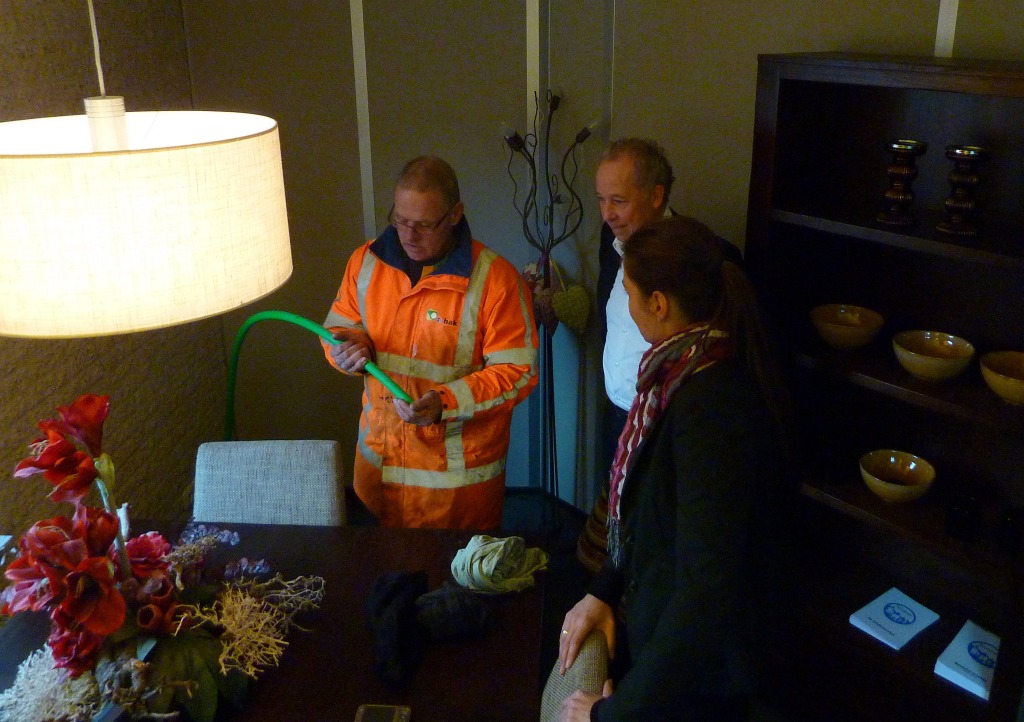
Recently, the third issue of the Vital Rural Area Newsletter was published. In this newsletter the focus was Optimising Services, Vital Rural Area’s Work Package 3. Kabel Noord was very honoured to be appointed as editors of this issue. On request of Jan Walburg, program manager of the European Interreg IVB project, our trainee Meindert Rozendal and me have done the interviews and compiled all the texts. In correct English, thanks to Paul Dickson from the UK! Here follows the newsletter. It can be downloaded as a PDF too.International Policy Forum

In May 2011, Danish, Norwegian, Belgian and Dutch partners met to review progress on Work Package 3, during the International Policy Forum at Esonstad, province of Fryslân. ‘Our goal is to improve the quality and the quantity of services in rural areas,’ said Martijn Ledegang Chairman Work Package 3. ‘These services can be non-profit or commercial. They may be delivered in a traditional way, but are more likely to be digital.’
Generally speaking, all proposed activities are developing on schedule, but there have been some setbacks. Martijn Ledegang explains, ‘the setbacks have been minor, mainly in process management and the search for cofunders. The market has to deal with the financial crisis and SMEs are reluctant to spend money on innovation with uncertain results. The good news is that all partners are in agreement about the scope and content of the proposed regional projects.
The broader picture has never been questioned.We are all certain that ICT, internet and new media will have an enormous influence on the future of rural regions and are doing our utmost to translate this into common practice.’
 The Work Package 3 partner meeting at Esonstad, left to right: Eli Viten, Simon Simonsen, Martijn Ledegang, Marcella Jansen.
The Work Package 3 partner meeting at Esonstad, left to right: Eli Viten, Simon Simonsen, Martijn Ledegang, Marcella Jansen. NOFA, Kollumerland, The Netherlands – Tinke, net Drinke
NOFA is working with NetNix, a foundation that produces multimedia with young people, for young people. NetNix filmed a series of videos for the ‘Tinke, net Drinke!’ (Think, don’t Drink) anti-alcohol project in Kollumerland. ‘Rather than inviting young people to unwanted advice sessions, we decided to use their music, video and daily lives as a backdrop to the problems associated with alcohol abuse,’ said Marcella Jansen. ‘Both adults and young people were happy with the result.’
NOFA, Burum, The Netherlands – Irreversible Trend
The North East Frisian municipality of Kollumerland c.a. and the Province of Fryslân have chosen the small village of Burum as the focus for their Vital Rural Area pilot projects. Burum is a small settlement with around 600 residents. The average age is rising – an irreversible trend. The village does not have a shop, café, post office or bank, however, the lively village centre has become the focus of activity.
Marcella Jansen, municipal project leader, explains, ‘a Byldskermloket is being created in the village centre. This virtual office desk will bring municipal and commercial services to the citizens, including a social support desk, police and shopping.’
‘Accessibility and transport, loneliness and safety are also key issues,’ added Marcella Jansen. ‘A group of stakeholders is working on a package of healthcare services based on ICT. Home help, GPs, a pharmacist and physiotherapists are participating. The plan is to offer services that will make it possible for the elderly to continue living in the village, even if they need care and assistance.’
‘We are promoting a healthy lifestyle and neighbourly help. Our umbrella project is called the ‘Smart Rural Network Society’. The aim is to build a community network, in close cooperation with the villagers. It will look like a local Facebook, will be connected to the digital office and will complement the village centre services.’

Vejen Kommune, Denmark – It’s all about changing habits!
Helped by its advanced fiber to the home network, Vejen Kommune has developed several projects for Work Package 3. They have prepared a web portal for elderly people and a number of video conferencing systems for various applications. Currently the most successful is distance medical diagnosis using video phones. Project Leader Simon Simonsen introduces a further project, ‘this year we have started implementing several digital self-service solutions. We expect that local residents will have less need to visit the municipality offices. Citizens will have access to services online. It’s all about changing habits!’
‘Until now people have been used to the idea that they had to go to the municipality’s offices. However, thanks to the work of more than100 of our Digital Ambassadors, who are training fellow citizens and colleagues to use the system, we have had a significant increase in online contact.’
 Training Digital Ambassadors in Vejen
Training Digital Ambassadors in Vejen Finnøy, Rogaland, Norway – Changing Lifestyle
How is the region going to improve innovation in health and wellbeing? Keywords are the use of ICT, lifelong learning and enabling individuals to make the right choices. Local project manager Heidi Skifjell explains, ‘our main aim is to change the lifestyle of Finnøy residents. This municipality comprises a number of islands and has 3000 inhabitants. The people do not have a healthy lifestyle.We think they should care more about their eating habits and take more exercise, instead of sitting in cars or behind desks. Rogaland county has launched a website, www.livsstil.finnoy.no, in cooperation with Finnøy municipality, containing information about health, better food and exercise. Recipes are provided and health specialists give advice including a medical doctor, a dietician and a physiotherapist. The popularity of the website is growing. Already 92 people have signed up. At the moment there are twice as many women as men, average age 45 to 50.We expect interest in the website will grow quickly.’
 Vital Rural Area stand at Finnøy Tomato Festival
Vital Rural Area stand at Finnøy Tomato FestivalTwijzelerheide, Achtkarspelen, The Netherlands – Byldskermloket
At the end of 2010 the Byldskermloket (virtual office desk) was opened in the Heidepunt (Village Support Centre) in the small community of Twijzelerheide, municipality of Achtkarspelen. Broadband with webcam connects the residents to the municipality offices, 15 kilometres away. Initially, only employment and welfare services were available, but during the last six months the municipality has developed a comprehensive package of services for its Twijzelerheide virtual office.
‘Not only does the municipality act as service provider,’ said Frederieke van der Lijn, project manager working with Esther Veenstra and a group of SME partners. ‘But the local police has also decided to use the virtual office. And although a final decision has yet to be made, the regional Rabobank wants to join the platform. The ADSL connection will be replaced by a broadband glass fiber network. This will improve the bandwidth, speed and capacity of the services. It will be possible to have Skype conversations in full HD quality, and file transfer will take milliseconds.’ The virtual office desk project was completed in 2011 and is now an integral part of the village’s daily life.
 Virtual Service Desk demonstration at Twijzelerheide Village Fair
Virtual Service Desk demonstration at Twijzelerheide Village FairAchtkarspelen, The Netherlands – Klasseglas Project
The Achtkarspelen municipality wants to connect all its primary schools to a glass fiber network. Using ICT will improve the quality of education programmes. Sytze Nauta, responsible for the Klasseglas project explains, ‘Twijzelerheide village support centre and two primary schools will be connected. This pilot will be monitored not only for education delivery, but also for local government and management use. The glass fiber connection will be operational by the end of 2011.’
Kortrijk, Belgium – Fast Glass Fiber Network
Several municipalities in the area now see the need for a fast glass fiber network. Recently they agreed a longterm plan for its development. However, according to Filip Meuris, project leader of Vital Rural Area in Belgium, more support at the political level is still necessary. ‘A test project started this year, in an area to the south of the city of Kortrijk. This is a modest pilot, resembling the Glês yn Hûs project in Dokkum, The Netherlands. We hope that it will facilitate new business activity, citizen engagement with public issues and greater community interaction.’
‘On 15 September all municipalities in the Kortrijk region signed the Regional Ambition for e-government and service delivery, which includes the commitment to collaborate over the ICT infrastructure. One of the main activities will be the construction of an open regional broadband network, connecting all local government offices, research and educational institutions, major industrial sites and hospitals.
The Vital Rural Area project has been an important catalyst for this commitment.’ The broadband infrastructure will support both new and existing projects, for example ‘My Ugly Spots’, ‘Our TV’ and a home care website. Filip Meuris explains, ‘citizens can post their ‘Ugly Spots’ online and these can commented on by others using Web 2.0 techniques. The local government has launched a digital TV platform, which shares news, experiences and views with residents. Anyone interested can become a stakeholder in ‘Our TV’. Before the end of 2011, we also plan to launch thematic films in co-operation with health and care professionals.’
 Broadband for rural areasDownload the Newsletter from the Vital Rural Area websiteInterviews: Meindert Rozendal, Kabel Noord / NHL University
Broadband for rural areasDownload the Newsletter from the Vital Rural Area websiteInterviews: Meindert Rozendal, Kabel Noord / NHL University
Text: Gijs van Hesteren, Kabel Noord
Editor: Paul Dickson, Norfolk county
Pictures: Vital Rural AreaPartners Vital Rural Area Project
NOFA, Buitenpost, The Netherlands - lead partner, Norfolk
County Council, Norwich, United Kingdom - chair WP1,
Streekplatform+ Meetjesland, Eeklo, Belgium - chair WP2,
Province of Fryslân, Leeuwarden, The Netherlands - chair WP3,
City of Langenhagen, Germany, Wirtschaftsakademie Schleswig-
Holstein, Büro Husum, Germany, Vejen Kommune, Denmark,
Municipality of Sluis, Oostburg, The Netherlands, Rogaland
Fylkeskommune, Stavanger, Norway, Finnøy Kommune, Judaberg,
Norway, Friese Poort Bedrijfsopleidingen, Leeuwarden, The
Netherlands, Intercommunale Leiedal, Kortrijk, Belgium,
Province of West Flanders, Brugge (Sint Andries), Belgium.
Interreg
Investing in the future by working together for a sustainable and competitive region.

Vital website
www.vitalruralarea.eu



























